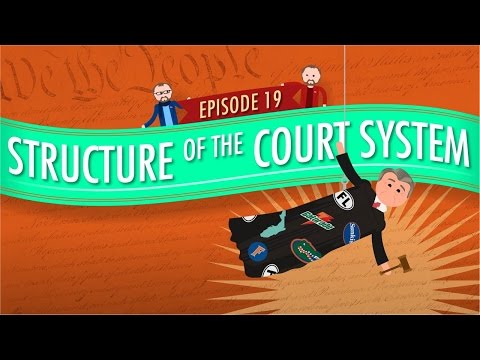
Welcome to this informative article about the appropriate court for international law cases! In this comprehensive overview, we will explore the intricacies of navigating the judicial landscape when it comes to resolving legal matters with an international dimension. It is important to note that while this article aims to provide valuable insights, it is always advisable to cross-reference with other sources or consult legal advisors for specific cases. So, let’s embark on this journey together as we delve into the fascinating realm of international law and the courts that oversee it.
Understanding the Jurisdiction for International Law Cases in the United States
Understanding the Jurisdiction for International Law Cases in the United States:
When it comes to international law cases in the United States, determining the appropriate court with jurisdiction can be a complex process. The jurisdiction is crucial as it determines which court has the authority to hear and decide a particular case. In this article, we will provide you with a comprehensive overview of the factors that determine the appropriate court for international law cases in the United States.
📋 Content in this article
The Role of Federal Courts:
In the United States, federal courts play a significant role in handling international law cases. These courts have jurisdiction over cases involving treaties, foreign governments, and disputes between citizens of different countries. Federal courts are also responsible for cases related to international trade, maritime law, and immigration issues.
Diversity Jurisdiction:
One important concept to understand is diversity jurisdiction. This refers to cases where the parties involved are from different states or countries. If the amount in dispute exceeds a certain threshold, typically $75,000, and there is diversity of citizenship, the case may be filed in federal court.
Subject Matter Jurisdiction:
Subject matter jurisdiction is another factor that determines which court is appropriate for an international law case. Some subject matters fall under the exclusive jurisdiction of federal courts, while others may be heard in state courts.
Choice of Forum:
In some cases, parties may have the option to choose between federal and state courts. This is known as choice of forum.
Understanding the International Court of Justice: An Overview
Understanding the International Court of Justice: An Overview
The International Court of Justice (ICJ) is the main judicial organ of the United Nations (UN) and is responsible for settling disputes between states. It plays a crucial role in the development and enforcement of international law. Here is a comprehensive overview of the ICJ and its significance in resolving international disputes.
1. Establishment and Composition:
The ICJ was established in 1945 and is located in The Hague, Netherlands. It consists of 15 judges who are elected by the UN General Assembly and the Security Council for a term of nine years. The judges represent different legal systems and regions, ensuring a diverse and impartial composition.
2. Jurisdiction:
The ICJ has jurisdiction to hear cases involving legal disputes between states. It can only address cases if both parties involved have voluntarily consented to its jurisdiction. The court also provides advisory opinions on legal questions referred to it by authorized UN organs and specialized agencies.
3. Types of Cases:
The ICJ can handle various types of disputes, including territorial disputes, breaches of international treaties, diplomatic issues, and human rights violations. It offers a peaceful platform for states to resolve their differences through legal processes rather than resorting to armed conflict.
4. Procedure:
The court follows a two-stage procedure for resolving cases. The initial stage consists of written submissions and oral pleadings, where both parties present their arguments and evidence. The second stage involves the judges deliberating and preparing a judgment, which is then read in a public session.
5. Enforcement and Compliance:
Unlike domestic courts, the ICJ lacks direct enforcement authority. Its judgments are binding, but the court relies on the cooperation of states to enforce them. However, non-compliance with ICJ decisions may result in reputational damage and strained diplomatic relations between the parties involved.
6.
Title: The Appropriate Court for International Law Cases: A Comprehensive Overview
Introduction:
In today’s interconnected world, the resolution of legal disputes involving international parties is becoming increasingly common. Determining the appropriate court for such cases is a crucial step towards ensuring a fair and just outcome. As an expert in US law, it is essential to stay current on this topic, as the landscape of international law is ever-evolving. This reflective article aims to provide a detailed overview of the factors involved in determining the appropriate court for international law cases, while emphasizing the importance of verifying and cross-referencing the information presented.
1. Jurisdiction:
Determining jurisdiction is the first step in deciding which court has the authority to hear an international law case. Jurisdiction can be established based on three principles:
2. Forum Non Conveniens:
The concept of forum non conveniens allows a court to decline jurisdiction if it believes that another court, which is more appropriate and convenient, should handle the case. Factors that may be considered include the location of evidence and witnesses, convenience for parties involved, and applicable laws.
3. International Treaties and Agreements:
International treaties and agreements play a significant role in determining the appropriate court for international law cases. These agreements may outline specific jurisdictional rules or establish specialized courts, such as the International Criminal Court (ICC) or the World Trade Organization (WTO) dispute settlement system.
4.
